Improving Access to Land in Urban and Peri-Urban Areas_Episode 2
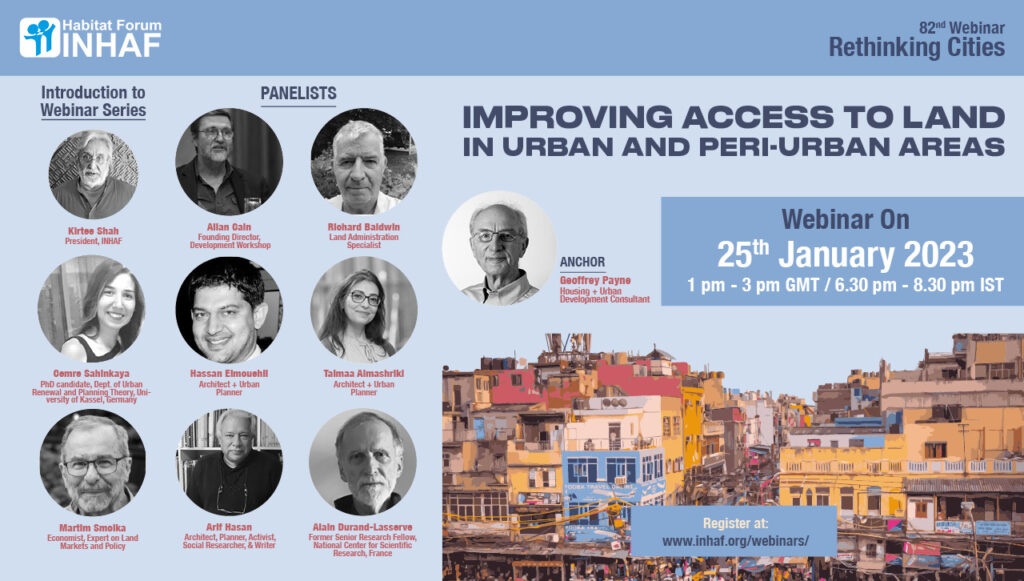
Geoffrey Payne is hosting and moderating the webinars and has invited an outstanding group of specialists from different age groups with both academic and practical experience on urban land management covering all regions and key aspects of land management. It is anticipated that the presentations will provide examples of innovative and pragmatic approaches to improving […]
Improving Access to Land in Urban and Peri-Urban Areas
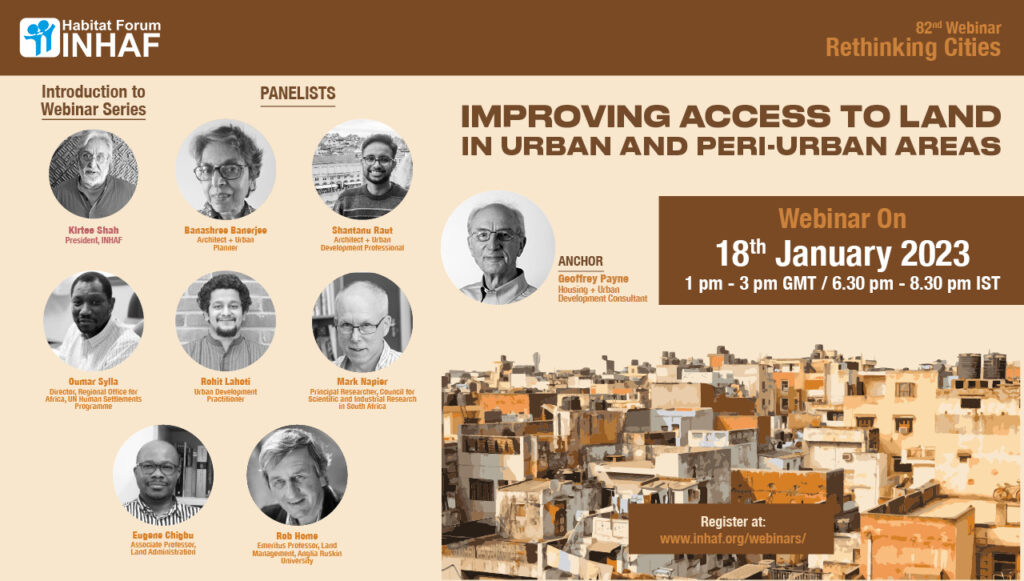
Geoffrey Payne is hosting and moderating the webinars and has invited an outstanding group of specialists from different age groups with both academic and practical experience on urban land management covering all regions and key aspects of land management. It is anticipated that the presentations will provide examples of innovative and pragmatic approaches to improving […]
The Challenge of Bengaluru’s Water Governance
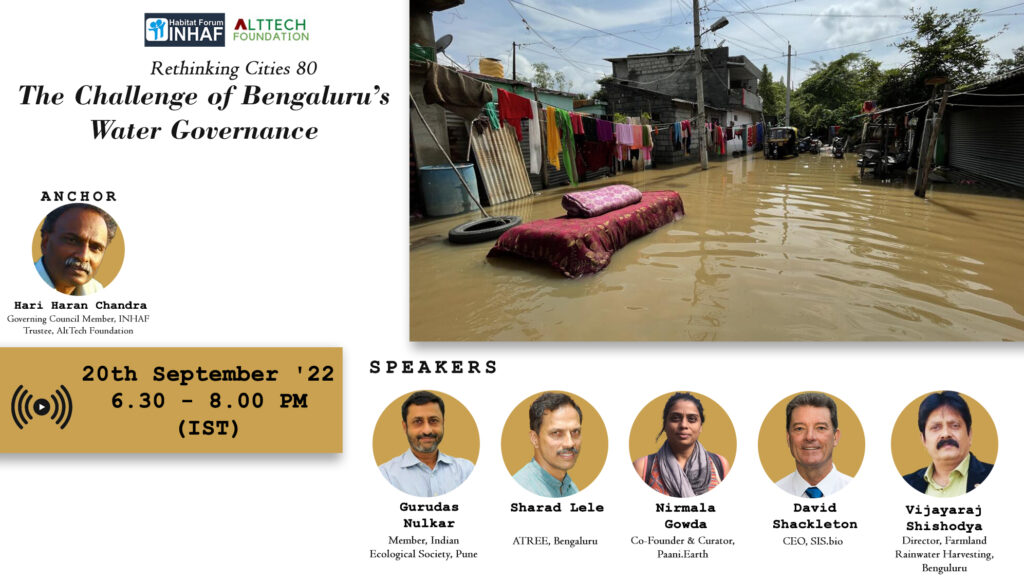
In a two-part discussion that brings together the decision makers and leaders of Bangalore, INHAF’s Rethinking Cities Series [Editions #79 and 80] bring you insights into the city’s state of current challenges on water [Sept 15], and what India’s third largest agglomeration can do to Water Governance Beyond Governments [Sept 20]. Bangalore hit national and […]
Bengaluru’s World of Water Woes
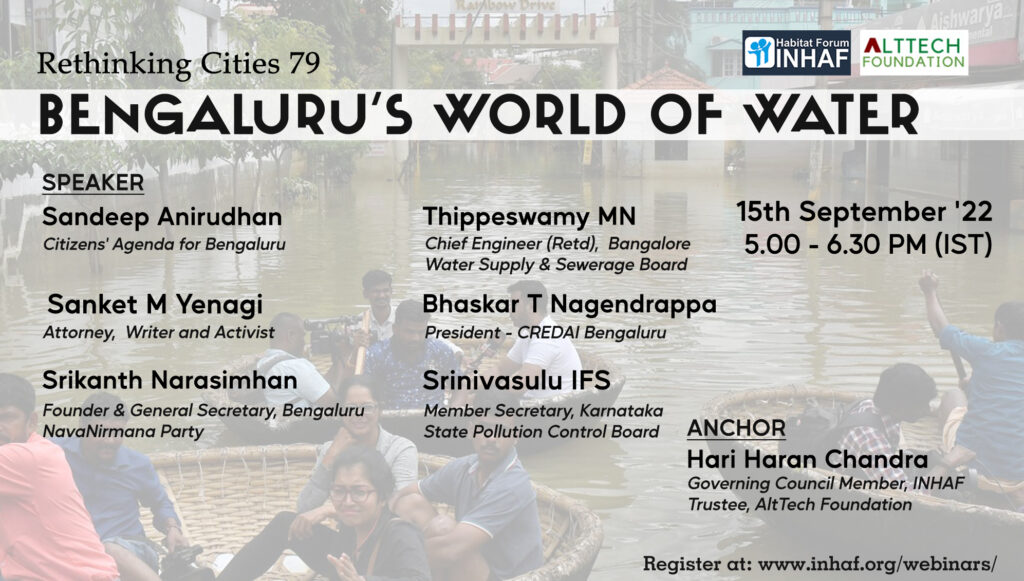
In a two-part discussion that brings together the decision makers and leaders of Bangalore, INHAF’s Rethinking Cities Series [Editions #79 and 80] bring you insights into the city’s state of current challenges on water [Sept 15], and what India’s third largest agglomeration can do to Water Governance Beyond Governments [Sept 20]. Bangalore hit national and […]
Mainstreaming Skilled Women Construction Workers- Part 3: Rights and Entitlements of Women Construction Workers
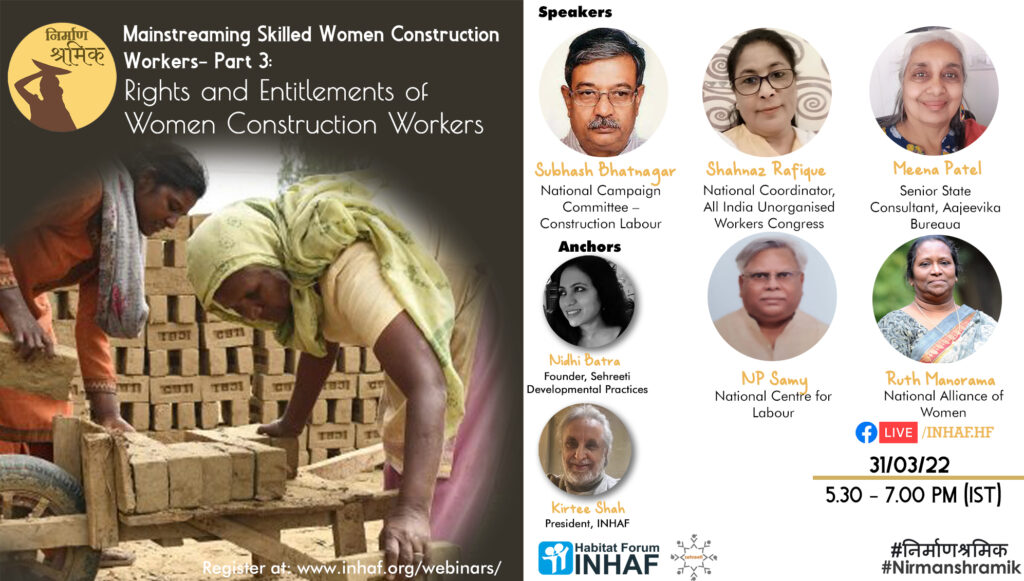
The sweeping reforms to labour laws introduced on 26th November 2020, has been described by many as a logical extension of three decades of neo-liberal hegemony that has sought to extend the hands of capital and dilute welfare responsibilities. With 44 central labour laws being consolidated into 4 labour codes, it is vital to review […]
Mainstreaming Skilled Women Construction Workers- Part 2: Pathways to Productive High Skilled Jobs for Women Construction Workers: Successes and Challenges

In 2015, when the Prime Minister launched the Skill India Mission, he announced the vision of making India the ‘resource capital of the world’. The construction industry, which is expected to generate 83 million jobs by 2022, will play a critical role in realizing this vision. A vital question that needs to be addressed at […]
Mainstreaming women construction workers in higher skilled productive roles – Part 1
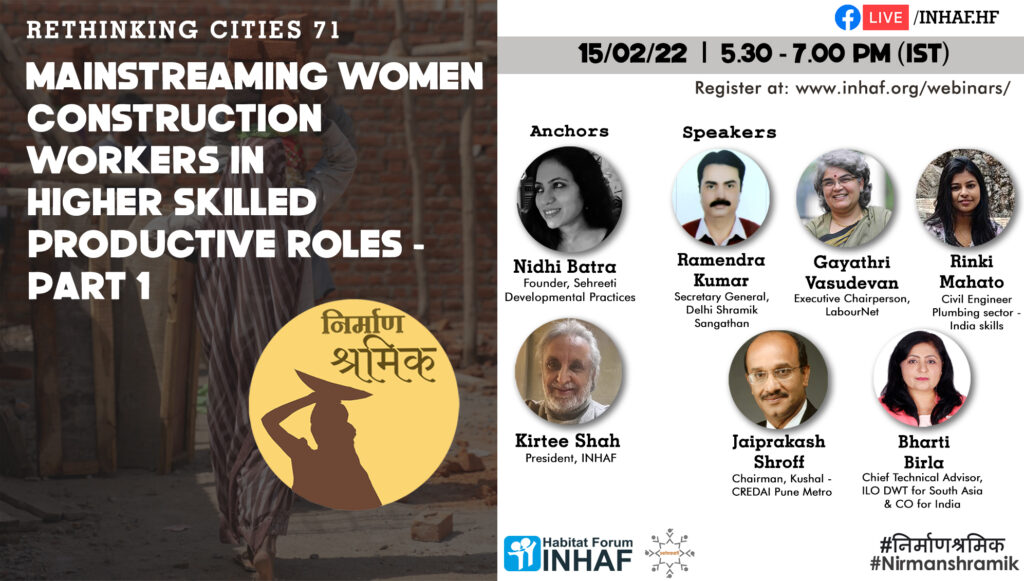
Are there women plumbers, carpenters, scaffolding experts – how often do we find them on construction sites? While the construction industry generates employment for about 15 million women, they are confined to jobs of the ‘dead-end variety’ marked by low wages, low stability, low productivity and low mobility. The construction industry in general is marked […]
Reconfiguring rental towards inclusion

With a significant urban housing shortage and large floating populations that move in and out of cities for education, exploration, or work, rental housing has been an important element of housing in Indian cities. It has received considerable policy attention in the wake of the 2020 migrant crisis. Our third webinar focuses on the viability […]
Are the urban rivers in India annihilated?
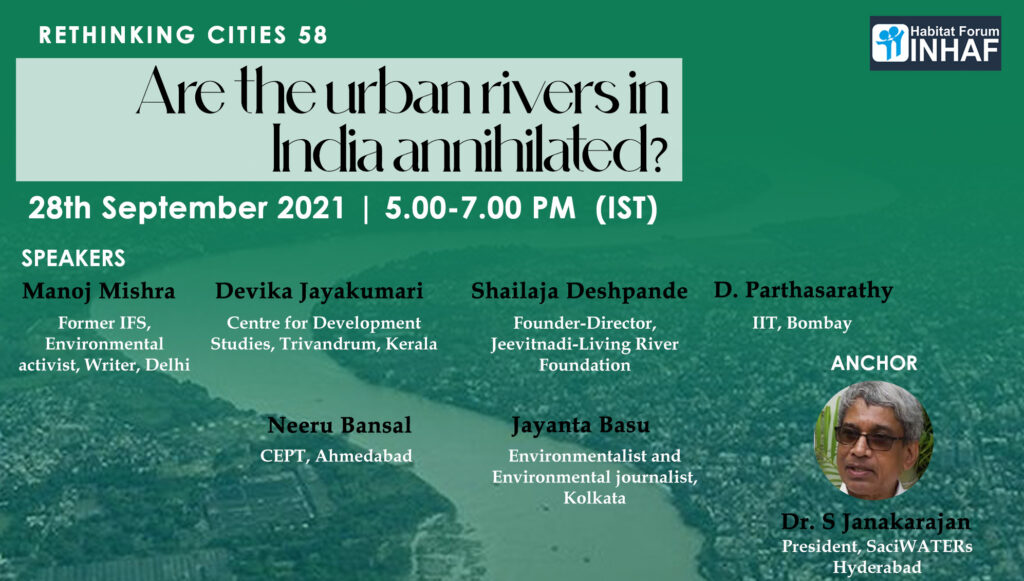
The extractive development and competitive growth models coupled with haphazard urban expansion plans are the root cause for the dying or dead urban rivers in India. The present trends of urban expansion programs in the country suggest that urban ecosystem is seemingly very heavily stressed and that the conditions are likely to go from bad […]
Inventing Institutional Structures For Delivering Affordable Shelter

Every State in India has an Affordable Housing policy. These are then sought to be implemented through various arms – be they Urban Local Bodies, Development Corporations or private developers. There is the PMAY for some financial support. We now have a national policy for rental housing on the anvil. The conception of all these […]
